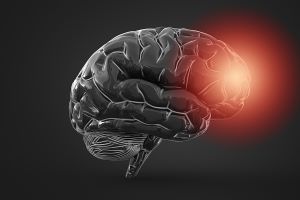 A new study published in the Proceedings of the National Academy of Sciences of the United States of America looked at the brain and impulsiveness.
A new study published in the Proceedings of the National Academy of Sciences of the United States of America looked at the brain and impulsiveness.
“In this study we investigated how the locus coeruleus (LC), the main source of norepinephrine (NE) in the brain, regulates attention and impulsivity,” study author Andrea Bari told us. “These cognitive functions are essential in everyday life and found to be impaired to various degrees in several pathologies, most prominently in children with attention deficit / hyperactivity disorder (ADHD).”
Researchers hoped to better understand the cognitive processes affected by LC activation.
From previous studies by Bari in the Laboratory of Professor Trevor Robbins at the University of Cambridge and the available literature, he knew that increasing NE in the prefrontal cortex (PFC), the brain region that allows us (and other advanced organisms) to focus and resist impulses, improves both deficits.
However, it was not known whether the stimulation of the LC would produce these beneficial effects or whether NE released by LC neurons modulates attention and impulsivity in overlapping or distinct brain regions.
“During my PhD in Cambridge (UK), I became interested in the modulation of cognitive and affective functions by the central noradrenergic system,” Bari told us. “Soon I realized that we still don’t fully understand how this system modulates several cognitive and affective functions such as memory, attention, mood and the way we respond to stressful events. I think that in the near future we will be able to leverage the noradrenergic system in order to devise better treatments for post- traumatic stress disorder, depression and anxiety and, of course, to boost attention, decrease distractibility and perhaps to enhance memory.”
In the Laboratory of Prof. Susumu Tonegawa at MIT, Bari had the opportunity to learn cutting edge techniques such as optogenetics and fiber photometry that allow the manipulation and the recording, respectively, of neural populations with unprecedented specificity.
“For this project, I thought that the best approach would be to use these powerful techniques in mice during tests of attention similar to those used with human subjects,” Bari told us. “This approach proved to be very useful since the LC is a very small nucleus located deep in the brainstem, which has been historically difficult to target. Also, due to the existence of different subtypes of attention, the use of sophisticated behavioral tests has been key for the success of this project.”
Researchers first confirmed that is the LC, and not other noradrenergic nuclei, to be causally involved in the modulation of attention and impulsivity. They then asked whether attention and impulse control are dependent on NE release in the PFC as a whole or can be dissociated. They found that NE in the dorso-medial part of the PFC is specifically involved in the modulation of attention, but not impulsivity, and that NE in the orbitofrontal area (which sits behind our eyes) is responsible for impulse control, but not attention.
“The double dissociation we found was clear and unexpected,” Bari told us. “Since both attention deficits and impulsivity often manifest together, I expected some degree of overlap in terms of brain areas involved in their regulation.”
There are already non-invasive techniques available that can be used to stimulate the LC (e.g. vagus nerve stimulation) and it would be important to test them in ADHD patients, says Bari.
“In addition, our results suggest that by modulating neural activity in specific areas of the PFC (e.g. by transcranial magnetic stimulation) we can be able to target more specific attention or impulse control deficits, which would be a big advantage.”
Patricia Tomasi is a mom, maternal mental health advocate, journalist, and speaker. She writes regularly for the Huffington Post Canada, focusing primarily on maternal mental health after suffering from severe postpartum anxiety twice. You can find her Huffington Post biography here. Patricia is also a Patient Expert Advisor for the North American-based, Maternal Mental Health Research Collective and is the founder of the online peer support group - Facebook Postpartum Depression & Anxiety Support Group - with over 1500 members worldwide. Blog: www.patriciatomasiblog.wordpress.com
Email: tomasi.patricia@gmail.com